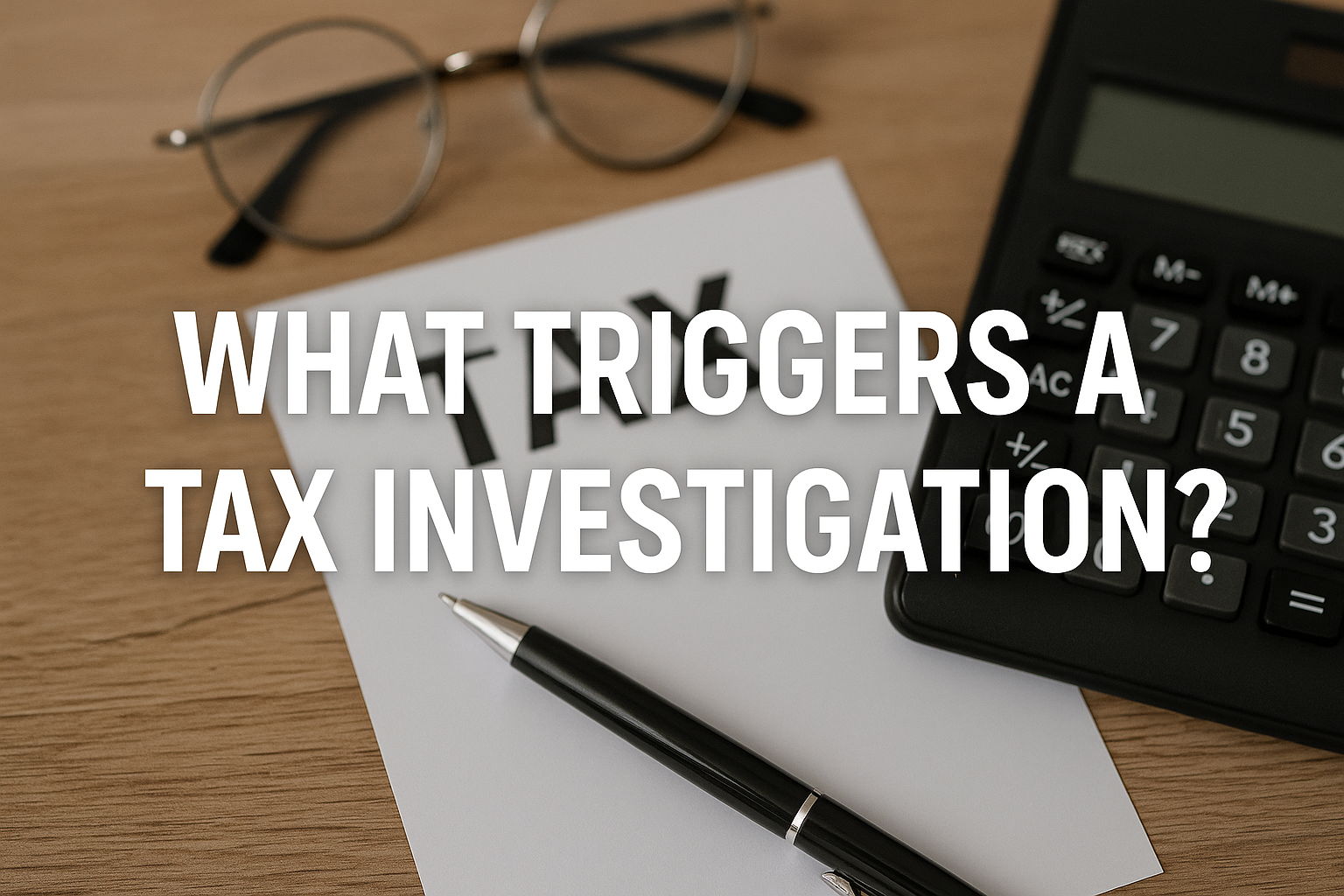Tax Investigation
What-Triggers a Tax Investigation?
Facing an HMRC investigation can be unsettling for individuals or businesses alike. It begins when HMRC suspects that your tax returns, accounts or declarations may not fully reflect your true income or expenses. Knowing the common warning signs can help you reduce the risk and ensure your tax affairs are in order.
Unexplained Changes in Income or Expenses
If your tax returns show major fluctuations—such as a sharp drop or spike in income, or unusually high expense claims compared to previous years—it can raise a red flag. HMRC may interpret large deviations as a potential error or indication of non-compliance unless you provide clear explanations.
Regular Errors, Late Filings and Mismatched Data
Submitting tax returns with frequent mistakes, relying on estimates without documentation, filing late, or failing to pay on time may mark you out for closer scrutiny. HMRC also compares information received from third parties (like banks or employers) with your declared figures; mismatches in this data are another trigger.
Excessive or Unusual Claims, and High-Risk Industries
Claiming unusually large amounts for things like travel, home office use, or uniforms without supporting records invites investigation. Businesses operating in sectors with high volumes of cash transactions, such as hospitality or construction, are inherently higher risk and subject to more frequent checks.
Lifestyle Doesn’t Match Declared Income or Tip-offs
If your declared income doesn’t seem to support the lifestyle shown by your assets or expenditures (for example high value property, luxury vehicles, frequent holidays), HMRC may investigate further. In addition, tip-offs from ex-employees, competitors or other third parties can trigger an inquiry even if you believe you’ve done everything correctly.
Random Selection and Internal Risk-Profiling
Not all enquiries are triggered by specific issues – some are selected at random or through HMRC’s internal risk-profiling tools. Even compliant taxpayers can be chosen for a check, so good preparation and records remain important regardless of perceived risk.
Conclusion
Being aware of what triggers an HMRC investigation will help you stay alert to risk-areas in your tax affairs. The key defenses are accurate and timely filing, proper documentation, consistency in returns, and a clear explanation for any material changes. If you stay organised, keep full records, and act proactively, you minimise your chances of becoming subject to a full enquiry.









